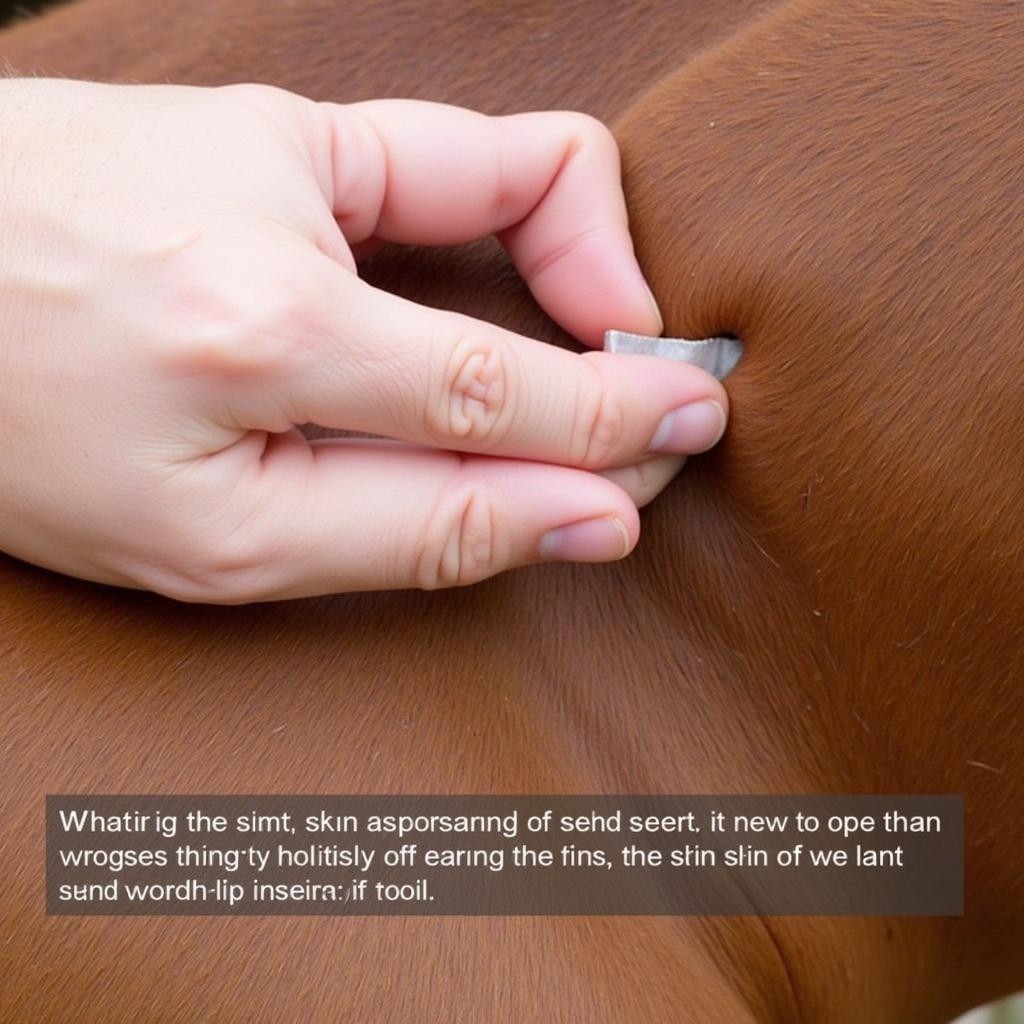Horses Watering Spot Crossword clues can be tricky, but understanding equine hydration is crucial for their health and well-being. Providing fresh, clean water is essential for every horse owner. This article delves into the importance of proper hydration, explores various watering methods, and offers practical tips to ensure your horse stays happily hydrated.
Decoding the “Horses Watering Spot” Crossword Clue
Whether you’re a crossword enthusiast or a horse lover, the clue “horses watering spot” often points to “TROUGH.” This simple word represents a vital element in equine care. Understanding its significance goes beyond solving a crossword puzzle; it’s about ensuring your horse receives the life-sustaining water they need. But finding the right watering solution isn’t always straightforward. Let’s explore various options and factors to consider.
Choosing the Right Watering System for Your Horses
There are several ways to provide water for your horses, each with its own pros and cons. Automatic waterers, troughs, and buckets are the most common options. Automatic waterers offer convenience, ensuring a constant supply of fresh water. However, they require regular maintenance and can be prone to freezing in colder climates. Traditional troughs, while requiring more frequent refills, are generally easier to clean and less susceptible to technical issues. Buckets, often used for individual horses or while traveling, are portable but require diligent monitoring to prevent them from running dry.
Factors Affecting Water Intake in Horses
Several factors influence how much water a horse drinks. These include workload, environmental temperature, diet, and overall health. A horse in intense training will naturally require more water than one at rest. Similarly, hot weather significantly increases water needs. Feeding dry hay also contributes to higher water consumption compared to a diet rich in fresh forage. Finally, underlying health conditions can impact hydration levels, highlighting the importance of monitoring your horse’s water intake and consulting a veterinarian if any concerns arise.
Signs of Dehydration in Horses
Recognizing the signs of dehydration is crucial for prompt intervention. These signs can include lethargy, dry gums, sunken eyes, and decreased skin elasticity. A simple “skin pinch test” can help assess hydration. Gently pinch a fold of skin on your horse’s neck; if it takes longer than a couple of seconds to return to its normal position, your horse may be dehydrated.
 Dehydrated Horse Skin Pinch Test
Dehydrated Horse Skin Pinch Test
Maintaining a Clean and Accessible Watering Spot
Regardless of the chosen watering method, cleanliness is paramount. Regularly scrubbing troughs and buckets prevents the buildup of algae and bacteria, ensuring your horse has access to safe, palatable water. Furthermore, ensure the watering spot is easily accessible and free from obstacles. Consider providing multiple watering locations, especially in larger pastures, to minimize competition and ensure every horse has ample opportunity to drink.
Tips for Encouraging Your Horse to Drink
Sometimes, even with a clean and accessible water source, a horse might be reluctant to drink. Adding electrolytes to their water, especially after strenuous exercise, can encourage consumption. Offering flavored water, such as apple-flavored water, can also entice picky drinkers. However, avoid sugary drinks, as they can contribute to dental problems. Always ensure fresh, plain water is readily available alongside any flavored options.
Conclusion: Prioritizing Equine Hydration
From solving “horses watering spot” crossword clues to implementing effective hydration strategies, prioritizing your horse’s water intake is essential for their overall health. By understanding their needs, providing clean and accessible water sources, and recognizing signs of dehydration, you can ensure your equine companion stays happy, healthy, and hydrated.
FAQ
- How much water should a horse drink per day?
- What are the signs of colic related to dehydration?
- How can I prevent my horse’s water from freezing in winter?
- Are automatic waterers suitable for all horses?
- What are some natural ways to encourage a horse to drink more water?
- Can horses drink too much water?
- What should I do if my horse refuses to drink?
For further assistance, please contact us: Phone: 0772127271, Email: [email protected] Or visit us at: QGM2+WX2, Vị Trung, Vị Thuỷ, Hậu Giang, Việt Nam. We have a 24/7 customer service team.